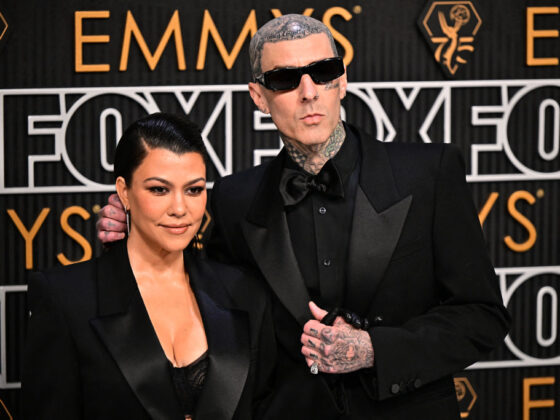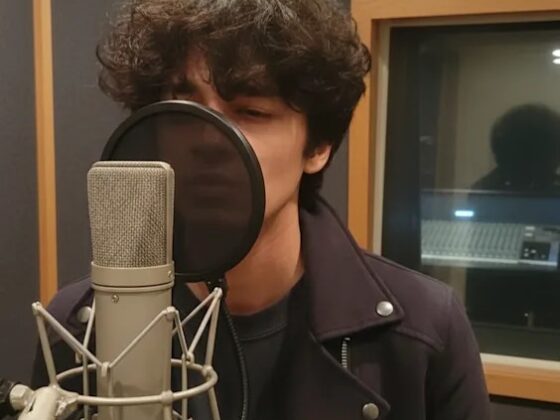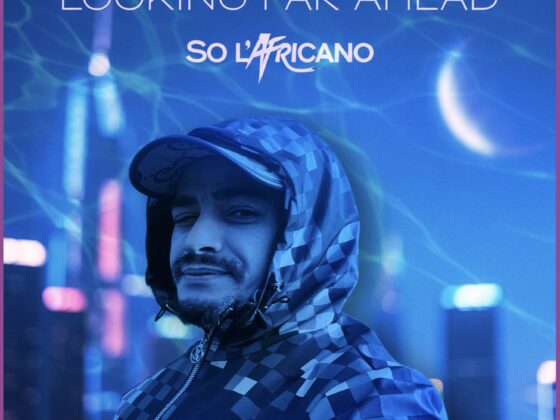Music has always had the power to transcend borders, but in today’s increasingly interconnected world, the idea of a “global music industry” is more tangible than ever. From K-pop’s meteoric rise in the West to Latin pop dominating global charts, artists, and songwriters around the world are finding new ways to connect with audiences far beyond their home countries. As digital platforms continue to expand, the lines between genres, languages, and cultures are becoming increasingly fluid. But what does this mean for the future of songwriting, and how are songwriters approaching the rapidly changing landscape?
We sat down with Paula Lleshi, a renowned songwriter whose work has reached millions across the globe, to discuss how the future of music and songwriting is becoming more global and how artists can navigate the evolving trends in an increasingly interconnected world.
Q: The global music industry has changed a lot in recent years. From your perspective as a songwriter, how do you see the future of music evolving on a global scale?
-Paula:
It’s exciting, honestly! The way we consume and share music has completely shifted with digital platforms, and we’re seeing a rise in genres and sounds that previously had little mainstream visibility outside of their regional markets. Globalization in music is no longer just about having one or two artists cross over into different markets. It’s about diverse sounds becoming mainstream. Take K-pop, for example—BTS and BLACKPINK didn’t just find success in South Korea; they’ve conquered the world, and their music often blends elements of hip-hop, EDM, and pop, which are popular globally. Latin music is another example where artists like Bad Bunny, J Balvin, and Rosalía are not just popular in Latin America but have global influence, and their songs are charting in places like the U.S. and Europe.
In the future, music will likely be more of a melting pot, where artists can seamlessly draw from influences all over the world. The idea of “international music” is going to feel much less “foreign” to listeners. As songwriters, we can take advantage of this trend to experiment with sounds, rhythms, and structures from around the world and introduce them to broader audiences.
Q: How do you think this “globalization” of music influences the songwriting process itself? Are there any specific challenges or advantages?
-Paula:
There are definitely both challenges and advantages, but I think the advantages far outweigh the challenges. The biggest advantage is that we have access to an ever-expanding array of sounds, rhythms, and instruments from every corner of the globe. As a songwriter, that’s incredibly liberating. You’re no longer confined to traditional Western pop structures. You can blend Afrobeat with trap, combine reggaeton rhythms with electronic synths, or take a classical Korean motif and fuse it with a pop melody. The possibilities are endless.
The challenge, of course, is making sure the fusion feels authentic. For example, as a Western artist, you don’t want to appropriate other cultures or make something feel inauthentic. The beauty of global music, in my opinion, lies in collaboration and mutual respect. In today’s industry, songwriters can work with artists from different parts of the world in ways that were never possible before. Platforms like Zoom or even social media make it so easy to collaborate remotely with people who are thousands of miles away, which means you get an authentic representation of various cultures and perspectives.
But it’s not just about the sound—it’s about the message. When you’re blending cultures, you have to be mindful of how your lyrics resonate across different societies. A lyric that might be culturally meaningful in one country could potentially come across as meaningless or misunderstood in another. That’s where working with artists from different backgrounds and paying attention to the subtleties of language and emotion is crucial.
Q: Digital platforms like Spotify, YouTube, and TikTok have played a massive role in making music accessible to global audiences. How has this affected your approach to songwriting?
-Paula:
It’s changed everything. Digital platforms have democratized music in a way that was unimaginable even a decade ago. As a songwriter, it’s incredible to know that your music could potentially be heard anywhere in the world. It shifts your focus from just writing songs for a specific demographic to thinking about how your music can connect with different cultures and markets.
One thing that’s been fascinating to observe is the power of viral trends on TikTok. A song can go viral on TikTok, and suddenly, it’s charting in places you never expected. This has made me think more about the rhythms and hooks that are universally catchy, things that can resonate regardless of language or culture. There’s a lot of freedom in writing songs that feel accessible globally, but at the same time, I try to stay true to my own voice and the specific emotions I want to convey.
At the same time, platforms like Spotify are pushing for more diversity in terms of playlists. For a songwriter, that means getting your music into a wider range of playlists—not just Western pop or rock—but also global playlists that feature music from all over the world. In a way, it’s a level playing field now. If your music is good and resonates with people, it can find an audience anywhere.
Q: In terms of songwriting, do you think there’s an emerging “universal” sound that’s transcending borders?
-Paula:
Yes, I think there’s a blend of sounds that is starting to define what I’d call the “global sound.” But what’s interesting is that this global sound isn’t one single genre; it’s a blend of many different things. There’s a real fusion happening between Western pop, Latin rhythms, Afrobeat, K-pop influences, and even more niche sounds like Middle Eastern or Indian music. But the key to its universality is the rhythm. The beat, the groove—those are what connect people regardless of culture. Think about the global success of Afrobeat or reggaeton. At their core, they have infectious rhythms that make people want to dance, and that’s universal.
That said, I think melody is also crucial. A strong, memorable melody can make a song resonate with anyone, no matter what language it’s in. Take BTS’s “Dynamite,” for example—it’s a fun, energetic pop song, and even though it’s in English, the melody, the upbeat vibe, and the infectious chorus transcend language barriers. It’s a perfect example of how a song can be global not just because of the lyrics but because of its universal appeal in terms of structure and vibe.
Q: Do you think that globalization in music will change the role of the songwriter in the future? Will we see more collaborations with artists from diverse cultural backgrounds?
-Paula:
Absolutely. I think collaboration is going to be at the heart of future songwriting. We’re already seeing it happen now, but I believe it will only increase. Songwriting is no longer an isolated activity—it’s a global team effort. The future will likely see more songwriters working with producers, lyricists, and artists from different countries to create music that speaks to a broader audience.
In the past, if you were a songwriter in a specific genre, you would often work within that genre’s conventions and culture. Now, though, genres are blending, and cultures are colliding in new and exciting ways. This means that songwriters will have to be even more open-minded and adaptable. We’ll have to learn to embrace influences from everywhere, and to write with an understanding of how our music can be interpreted across different cultures.
I think the role of the songwriter will be less about individual recognition and more about the collective process. It will become about curating ideas from a global perspective and tapping into the creative energies of different cultures, sounds, and rhythms. It’s a very exciting time to be a songwriter, and I think the global future of music will be about connection—both musically and emotionally.
Q: In your opinion, what’s the most important thing songwriters need to keep in mind as they write for a global audience?
-Paula:
The most important thing is to stay authentic. The beauty of global music today is that people crave authenticity. They don’t just want something that’s polished or trendy—they want to hear the truth in the lyrics, the soul in the melody, and the passion in the performance. That’s universal.
At the same time, being open to different musical styles and influences is crucial. We’re living in an age where music from anywhere can resonate with people everywhere, and as songwriters, we have to be curious and adaptable. But at the core of all of this is sincerity. If you can combine authenticity with a willingness to experiment and embrace new cultural sounds, then your music will connect.
The future of songwriting, like the future of music itself, is global—and it’s all about finding common ground while celebrating what makes us unique.








